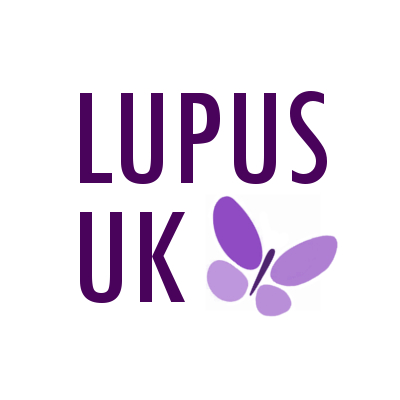Cost of Living Crisis
Are you struggling with the rising costs of living? Financial pressures are causing uncertainty and stress for many people with lupus and their families, especially through the winter months. LUPUS UK is here to help.
STAYING WARM
We understand the need for people with lupus to keep their homes warm. The Energy Saving Trust recommends heating your home to between 18 °C to 21 °C (64 to 70 Fahrenheit). The NHS recommends heating your home to at least 18 °C in the rooms you regularly use, such as your living room and bedroom.
Cold weather can be very harmful, especially for people aged 65 or older and those with long-term health conditions. A cold home can increase blood pressure, thicken the blood, and lower body temperature, increasing risks of heart attacks, strokes and chest infections.
With the increase in energy costs, we appreciate how difficult and stressful it can be for many people with lupus at this current time. This particularly includes those who may have additional home energy costs because of their treatment and those continuing to shield/isolate due to COVID-19
Help with gas and electricity bills
The government has introduced a range of measures to reduce the impact of rising energy bills on households this winter:
Energy Bills Support Scheme – a £400, non-repayable discount to energy bills paid automatically in six instalments between October 2022 and March 2023.
Cost of Living Payment – households on means tested benefits, including Universal Credit, Pension Credit and Tax Credits, have received £650 paid in two instalments.
Disability Cost of Living Payment – individuals on disability benefits received a one-off £150 payment in September 2022 to help with extra costs.
Pensioner Cost of Living Payment – this winter, pensioners will receive an extra £300 one-off payment as an automatic top-up to the Winter Fuel Payment.
Winter Fuel Payments – pensioners can get between £100 and £300 to help pay heating bills in the winter months.
Cold Weather Payments – you may be eligible for £25 extra a week if you are on certain benefits and the temperature is zero or below for more than seven days.

Free Warm Welcome Spaces
If you are struggling to keep your home heated and need a warm and welcoming space to go for a few hours, Warm Welcome Space is a network of over 3,000 community organisations, churches, libraries, businesses and faith groups that have opened warm, welcoming spaces for the public over this winter across the UK. You can find your nearest Warm Welcome Space on their map HERE.


1. Plan your meals in advance – a meal plan will help you to only buy what you need each week. You could find some inspiration for low cost healthy meals in this article from British Heart Foundation.
2. Make a shopping list – use your meal plan to note the ingredients you need and stick to the list, avoiding impulse purchases.
3. Batch cooking – try cooking extra portions of some of your meals each week. Cooking larger quantities will use up all the ingredients and can save you making a meal from scratch if you are struggling with fatigue.
4. Buy in bulk – it can often be cost effective to buy larger quantities of foods you eat regularly. Good options for this include staples like rice and dry pasta.
5. Swap fresh for frozen – using frozen instead of fresh foods can help reduce the cost of meals. Frozen fruit and vegetables may even be more nutritious because they are processed at their peak ripeness.
6. Stock up on tinned goods and basic staples – tinned fruits, vegetables, pulses, and legumes are typically cheaper and have a longer shelf life.
7. Store food correctly – reducing food waste will save you money. Storing your food correctly will help it last longer. You can find lots of food storage tips online, such as HERE.
If you are struggling to afford enough food for your household, you may consider accessing support from a local foodbank. If you need to use a foodbank you will need a referral. The processes for foodbanks and referral may vary between regions so it is important to ask for local advice. You can learn more about the referral process and how to find your nearest foodbank HERE.
BENEFITS ADVICE
If you are struggling financially, it may be worthwhile checking whether you are entitled to any benefits. Many people with lupus may be eligible for a disability benefit such as Personal Independence Payments (PIP) and this can potentially be a gateway to more help.
You can check whether you are entitled to any benefits by using an online benefits calculator – HERE.
If you are planning to apply for disability benefits such as PIP or Employment and Support Allowance (ESA), LUPUS UK has some self-help guides from Benefits & Work available for members. You can see what is available and how to request them HERE. We also have recordings from a series of webinars which might be helpful, HERE.
BEWARE OF SCAMS
Unfortunately, criminals have increasingly been trying to exploit people during these uncertain times. There are many scams targeting households with fake offers of rebates and support payments. Official Government support payments are usually automatic, so you should be wary if you get an unexpected request for information via text, email, or phone call.
MoneySavingExpert have an article with a few examples of scams to watch out for HERE. They also have a helpful article with lots of tips to spot and avoid scams HERE.

Cost of Living Emergency Assistance Grants
LUPUS UK Cost of Living Emergency Assistance Fund
In recognition of the challenging financial situation for many people with lupus this winter, LUPUS UK provided a Cost of Living Emergency Assistance Fund from January until 31st March 2023. Unfortunately, this fund is no longer accepting applications.
Turn2Us Grant Search Tool
Turn2Us have an online search tool that can help you find grants and/or other types of help from a range of different organisations. You can give it a try HERE.
Fancy a Chat?
If you are finding the situation challenging and stressful, it can be helpful to talk about it. LUPUS UK is here if you would like to chat with someone who understands.
LUPUS UK Telephone Contacts
We have trained volunteers, called Contacts, who either have lupus themselves or have a family member with the disease. You can chat with our Contacts over the telephone. They are not medically trained but are there to offer both emotional and general support and signpost you to someone who can advise you. The telephone service is confidential, and you can disclose as much as you wish. The support service is free apart from the cost of the call.
You can request details of your local contact HERE.


HealthUnlocked Online Forum
The community is available for free to anybody affected by lupus to get information, support and advice from other people who are similarly affected. We welcome people with any form of lupus (SLE, discoid lupus, drug-induced lupus, cutaneous lupus etc.) as well as those with associated conditions such as mixed connective tissue disease (MCTD) and undifferentiated connective tissue disease (UCTD).
The community discusses a wide range of topics including; diagnosis, symptoms, medical appointments, medications and support available. You can join the forum HERE.
FURTHER READING
For more information about financial support and advice on managing the cost of living this winter, you may wish to try some of the articles below:
• Help for Households
https://helpforhouseholds.campaign.gov.uk/
• Citizens Advice | Get help with the cost of living
https://www.citizensadvice.org.uk/debt-and-money/get-help-with-the-cost-of-living/
• MoneySavingExpert | 47 Xmas Money Saving tips
https://www.moneysavingexpert.com/shopping/christmas-savings/
• BBC | Cost of living tips: Your personalized guide to saving money
https://www.bbc.co.uk/news/resources/idt-ade565c-753a-43c8-b58d-de98196801ff
